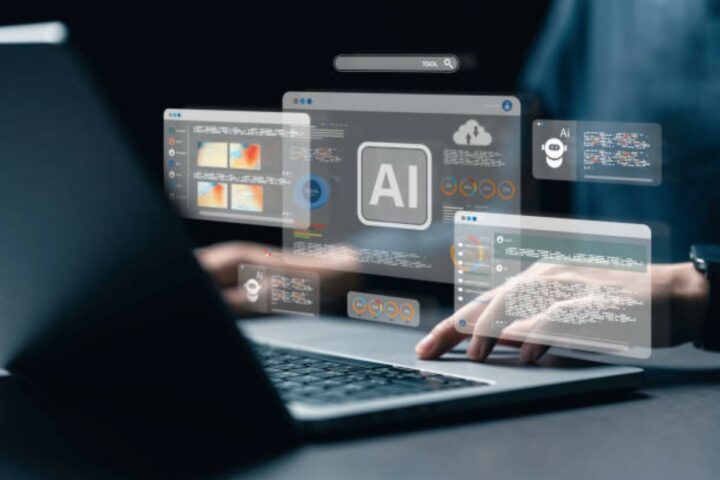Artificial intelligence (AI) tools have become indispensable in driving innovation and efficiency across digital projects. Whether you’re working on a website, mobile app, marketing campaign, or software development initiative, AI tools can streamline workflows, enhance creativity, and deliver superior outcomes. Here’s how AI can revolutionize your digital projects.

1. Automating Repetitive Tasks
One of AI’s most transformative capabilities is automating time-consuming and repetitive tasks. In project management, tools like Trello with AI integrations or Microsoft Power Automate can handle scheduling, resource allocation, and status tracking. This allows teams to focus on high-value tasks, boosting productivity and reducing the risk of human error.
For content creation, AI-driven platforms like Copy.ai and Jasper can generate blog posts, marketing copy, and even SEO-optimized content in minutes. These tools save time while maintaining quality, enabling teams to meet tight deadlines without compromising creativity.
2. Enhancing Creativity
AI tools are redefining creative possibilities for digital projects. For designers, AI-powered platforms like CGDream image generator offer smart suggestions and automate graphic generation. These tools enable rapid prototyping and experimentation, reducing the iterative cycle.
In video production, AI can simplify editing processes through platforms like Runway ML, which automates tasks like background removal and color grading. For music and sound design, tools like AIVA and Amper Music allow creators to compose original scores tailored to specific moods or themes, significantly enhancing the multimedia experience.
3. Improving Decision-Making with Data Insights
Data-driven decision-making is critical for the success of any digital project, and AI tools excel in extracting actionable insights from large datasets. Tools like Google Analytics with AI features and Tableau leverage machine learning algorithms to identify patterns, forecast trends, and provide recommendations. This ensures your projects align with audience behavior and market demands.
For e-commerce projects, AI tools like Shopify’s analytics features analyze customer data to suggest product recommendations, optimize pricing strategies, and predict sales trends. These insights can help businesses stay competitive and maximize ROI.
4. Personalizing User Experiences
Personalization is key to the success of digital projects, and AI makes it easier than ever. Tools like ChatGPT and OpenAI APIs enable businesses to integrate conversational AI into their platforms, offering real-time, tailored interactions. Chatbots powered by NLP (natural language processing) can provide customer support, recommend products, or guide users through complex processes.
Recommendation engines, powered by machine learning algorithms, deliver customized suggestions for content, products, or services. Platforms like Netflix and Amazon have set the benchmark for AI-driven personalization, inspiring businesses across industries to adopt similar strategies.
5. Optimizing Development Processes
AI tools can accelerate software development and debugging, reducing time to market. GitHub Copilot, for instance, uses AI to assist developers by suggesting code, identifying errors, and even generating entire functions based on natural language prompts. This streamlines coding workflows and ensures higher code quality.
AI testing tools, such as Testim and Applitools, automate test case generation, identify vulnerabilities, and simulate user interactions. These capabilities improve the robustness of digital applications while reducing development costs.
6. Boosting Accessibility and Inclusivity
AI tools play a vital role in making digital projects more inclusive. Speech recognition, real-time translation, and text-to-speech technologies help bridge language barriers and accommodate users with disabilities. For instance, tools like Otter.ai generate accurate transcriptions for video content, enhancing accessibility for the hearing impaired.
Design platforms that integrate AI ensure user interfaces meet accessibility standards by analyzing color contrasts, font sizes, and navigation elements.
7. Empowering Scalability
As digital projects grow, scalability becomes a critical concern. AI tools provide the flexibility to handle increasing demands, whether by optimizing cloud resources with platforms like AWS AI services or managing workflows with AI-driven project management tools. This ensures that projects remain efficient and reliable as they scale.



















Fantastic read! Your tips are practical and super helpful—I’ll definitely be trying some of them out.